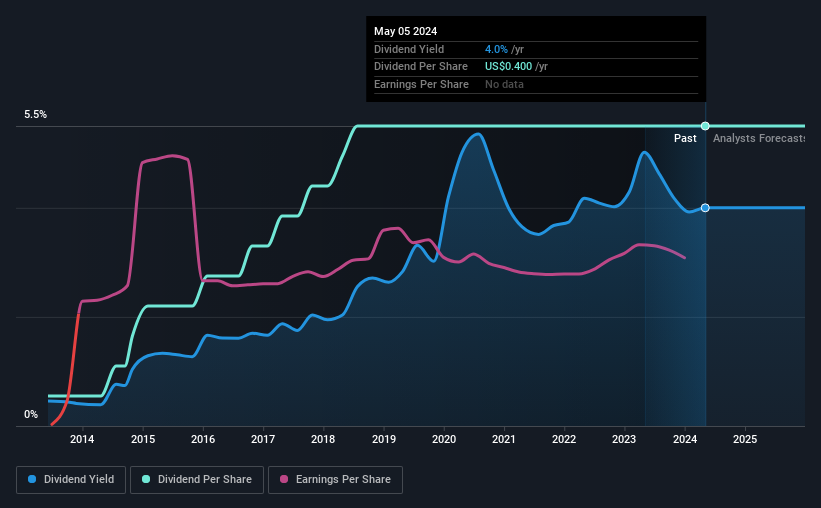Don't Buy BankFinancial Corporation (NASDAQ:BFIN) For Its Next Dividend Without Doing These Checks
Regular readers will know that we love our dividends at Simply Wall St, which is why it's exciting to see BankFinancial Corporation (NASDAQ:BFIN) is about to trade ex-dividend in the next three days. The ex-dividend date is one business day before the record date, which is the cut-off date for shareholders to be present on the company's books to be eligible for a dividend payment. It is important to be aware of the ex-dividend date because any trade on the stock needs to have been settled on or before the record date. In other words, investors can purchase BankFinancial's shares before the 9th of May in order to be eligible for the dividend, which will be paid on the 24th of May.
The company's upcoming dividend is US$0.10 a share, following on from the last 12 months, when the company distributed a total of US$0.40 per share to shareholders. Based on the last year's worth of payments, BankFinancial has a trailing yield of 4.0% on the current stock price of US$10.00. Dividends are an important source of income to many shareholders, but the health of the business is crucial to maintaining those dividends. We need to see whether the dividend is covered by earnings and if it's growing.
Check out our latest analysis for BankFinancial
Dividends are typically paid from company earnings. If a company pays more in dividends than it earned in profit, then the dividend could be unsustainable. BankFinancial paid out more than half (54%) of its earnings last year, which is a regular payout ratio for most companies.
Companies that pay out less in dividends than they earn in profits generally have more sustainable dividends. The lower the payout ratio, the more wiggle room the business has before it could be forced to cut the dividend.
Click here to see the company's payout ratio, plus analyst estimates of its future dividends.
Have Earnings And Dividends Been Growing?
Companies with falling earnings are riskier for dividend shareholders. If earnings decline and the company is forced to cut its dividend, investors could watch the value of their investment go up in smoke. Readers will understand then, why we're concerned to see BankFinancial's earnings per share have dropped 7.4% a year over the past five years. Such a sharp decline casts doubt on the future sustainability of the dividend.
The main way most investors will assess a company's dividend prospects is by checking the historical rate of dividend growth. Since the start of our data, 10 years ago, BankFinancial has lifted its dividend by approximately 26% a year on average. That's interesting, but the combination of a growing dividend despite declining earnings can typically only be achieved by paying out more of the company's profits. This can be valuable for shareholders, but it can't go on forever.
Final Takeaway
From a dividend perspective, should investors buy or avoid BankFinancial? Earnings per share have been declining and the company is paying out more than half its profits to shareholders; not an enticing combination. This is not an overtly appealing combination of characteristics, and we're just not that interested in this company's dividend.
Wondering what the future holds for BankFinancial? See what the two analysts we track are forecasting, with this visualisation of its historical and future estimated earnings and cash flow
If you're in the market for strong dividend payers, we recommend checking our selection of top dividend stocks.
Have feedback on this article? Concerned about the content? Get in touch with us directly. Alternatively, email editorial-team (at) simplywallst.com.
This article by Simply Wall St is general in nature. We provide commentary based on historical data and analyst forecasts only using an unbiased methodology and our articles are not intended to be financial advice. It does not constitute a recommendation to buy or sell any stock, and does not take account of your objectives, or your financial situation. We aim to bring you long-term focused analysis driven by fundamental data. Note that our analysis may not factor in the latest price-sensitive company announcements or qualitative material. Simply Wall St has no position in any stocks mentioned.

 Yahoo Finance
Yahoo Finance 
